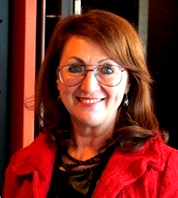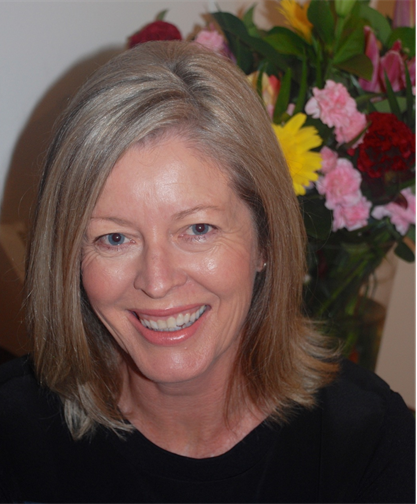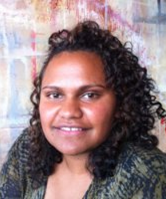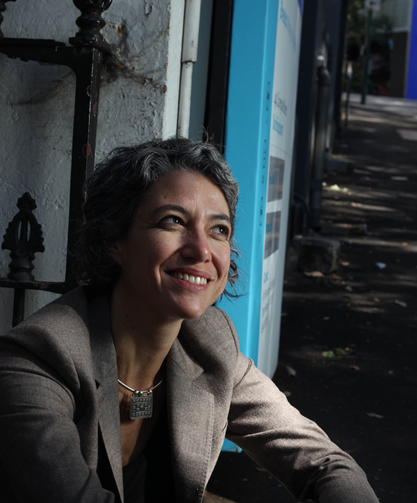Speakers & Presentation Slides
An array of nationally and internationally acclaimed speakers representing the alcohol and other drugs, health, ageing, and aged care sectors presented at the National Methamphetamine Symposium. Click on the links below to download pdf versions of the PowerPoint presentations and/or watch the full presentation on YouTube.
 |
Professor Ann Roche, Director, National Centre for Education and Training on Addiction, Flinders University Professor Ann Roche is the Director of the National Centre for Education and Training on Addiction (NCETA). She has 30 years’ experience in public hSaveealth and has worked as a researcher, educator, and policy analyst with a particular focus on the alcohol and other drugs drug field. Ann has published extensively in alcohol and drug-related public health areas, including over 100 papers and reports, with several books and book chapters. She has worked as a consultant to the World Health Organization, undertaken numerous consultancies for government and non-government bodies and has acted as an adviser on a wide range of committees in the alcohol and drug field. Download presentation: Methamphetamine use in Australia: What the data tells us about patterns of use |
 |
Professor Paul Dietze Professor Dietze is one of Australia’s leading alcohol and other drug epidemiologists with a significant national, and emerging international, profile. With over 17 years’ experience and an outstanding track record in obtaining competitive grants, his work has established internationally innovative surveillance systems and applied research designs that break new ground in the public health research into alcohol and other drug use and related harms in Australia. He has produced over 120 journal articles, along with many other reports of significant impact, that have changed practice in the area of alcohol and other drugs in this country. During the course of his research career he has received over $20 million of research funding. Download presentation: Trends in prevalence in use and harms: Implications for harm reduction |
|
Stephanie and Jane Jane is Harm Reduction Victoria’s (HRV) Drug Overdose Peer Educator (DOPE program). She has worked in the AOD sector as a harm reduction peer educator for 17 years. She is responsible for HRV’s naloxone training; since it became available in Victoria in August 2013 she has trained 493 peers and healthcare staff to use the opiate-agonist and more than 60 participants subsequently reported successful reversals. Jane was awarded the Yarra Drug and Health Forum’s Worker of the Year 2013. Stephanie has worked in a diverse range of capacities in the AOD and public healthcare sector both in Australia and internationally for the past 8 years, and works as a volunteer lawyer at a community legal centre. She currently coordinates HRV’s DanceWize program. DanceWize is a peer education program that promotes harm reduction at music events across Victoria. DanceWize has published a range of empirically-based substance specific resources that have proven highly popular among peers and healthcare staff alike, including resources on various novel psychoactive substances (NPSs) and methamphetamine or Ice. Presentation: Methamphetamine: User/peer perspectives |
|
 |
Dr Ken Pidd Dr Pidd is Deputy Director (Research) of the National Centre for Education and Training on Addiction (NCETA), Flinders University. He has produced numerous publications concerning the workplace and alcohol and drug use and provides consultancy and advice on this issue to government and non-government organisations, unions, employer groups, and individual employers. His other research and practice interests include training quality and training transfer, and workforce recruitment and retention. Ken is the South Australian representative and chair of the Alcohol and Other Drugs Council of Australia’s Workplace/Industrial Occupational Health and Safety Reference Group and represents NCETA on several other committees including the Construction Industry Drug and Alcohol Program Management Committee. Download presentation: Methamphetamine use in the workplace: Options for prevention and intervention |
 |
Professor Richard Murray Professor Murray is a member of the Prime Minister’s newly established National Ice Taskforce. He is Dean of the College of Medicine and Dentistry at the James Cook University. His career focus has been in rural and remote medicine, Aboriginal health, public health, tropical medicine, health professional education and the needs of underserved populations. Professor Murray is the Immediate Past President of the Australian College of Rural and Remote Medicine. Download presentation: Update on National Ice Taskforce |
 |
Professor Amanda Baker Professor Baker is a National Health and Medical Research Council Senior Research Fellow employed in the School of Medicine and Public Health at the University of Newcastle, NSW. Amanda has worked as a clinical psychologist in both mental health and substance abuse treatment settings in Australia and the UK. She is currently Co-Director of a Centre of Research Excellence in Mental Health and Substance Use. Amanda has extensive experience in conducting multi-site randomized controlled trials for a wide range of public health issues, including methamphetamine use, and has co-authored numerous clinical guidelines for methamphetamine treatment. She is the recipient of numerous national awards and prizes, and is immediate past president of the Australasian Professional Society on Alcohol and Other Drugs. Download presentation: Physical and psychological effects of methamphetamine use |
 |
A/Professor Rob Hester A/Professor Hester is Director of the Cognitive Neuroimaging Laboratory at the University of Melbourne, and holds an ARC Future Fellowship. His research focuses on the cognitive neuroscience of executive function, in particular the neural bases of self control and its relationship to clinical disorders featuring cognitive dyscontrol (e.g., drug addiction). This includes investigating the neural mechanisms underlying control behaviours considered germane to addiction (e.g., impulse control, insight). For example, published work with healthy adults and applied studies with a range of drug abusing groups cocaine, methamphetamine, cannabis, nicotine, opiate and alcohol), and more recently, whether such deficits can be ameliorated with pharmacological interventions. Download presentation: Neural and cognitive effects of methamphetamine and implications for treatment |
 |
Ms Dina Saulo Ms Dina Saulo is a research officer at the Kirby Institute. She is currently involved in the Justice Health Research Program. This program focuses on the justice health area involving adult and juvenile prisoners, those serving community-based sentences, and ex-offenders. Prior to this, Dina coordinated the Aboriginal Sexual and Reproductive Health Program. This program aimed to help 12-19 year old youth engage in healthy relationships and make healthy choices. Dina was also the data collection coordinator for the Goanna Survey. This survey was the first national research project to assess the sexual health knowledge, risk behaviours and health service access of Aboriginal & Torres Strait Islander youth aged 16 - 29. Download presentation: Methamphetamine use in Aboriginal communities: What we know—What are the gaps? |
 |
A/Professor Nadine Ezard A/Professor Ezard is Clinical Director of the Alcohol and Drug Service, St Vincent’s Hospital. A founding fellow of the Australasian Chapter of Addiction Medicine, she has worked with drug and alcohol users for over 20 years. Most recently she has worked overseas with the UN and WHO, with a particular focus on conflict and emergency settings and refugee and displaced populations. Her body of peer-reviewed research focuses on building the evidence base for improved health interventions for marginalised populations. Recognising the importance of social determinants of health inequalities, she has a particular interest in building the evidence base for public health-clinical care linkages for reducing substance-related harm. Download presentation: Effective strategies to address methamphetamine problems in primary care, emergency departments and hospital settings |
 |
A/Professor Nicole Lee A/Professor Lee is a researcher at the National Centre for Education and Training on Addiction (NCETA), Flinders University, and Adjunct Associate Professor at the National Drug Research Institute (NDRI), Curtin University. Nicole is a practicing consultant psychologist and has 20 years’ experience in the substance use and mental health fields in research, teaching and training, and practice. Nicole has undertaken research, training and clinical practice in pharmaceutical misuse and was commissioned to analyse submissions to the enquiry and develop practice recommendations for the Victorian Parliament Drugs and Crime Prevention Committee Inquiry into the misuse/abuse of benzodiazepines and other forms of pharmaceutical drugs in The Victoria Report in 2006. |
|
Panel Discussion The panel discussion, facilitated by Professor Ann Roche, and comprising Associate Professor Nicole Lee, Professor Amanda Baker, Dr Ed Ogden, Steph and Jane, Ms Paula Ross and Associate Professor Lynne Magor-Blatch explored a range of key issues/questions raised by participants throughout the Symposium. It was acknowledged by the panel that there needs to be a coordinated approach to responding to methamphetamine-related concerns that focus on demand and harm reduction initiatives. There was universal support for the view that the current strong focus on supply reduction required a more balanced approach. The importance of empirically based evidence to inform strategies/responses was highlighted while noting that some of the best research/evidence currently available to address methamphetamine problems emanates from Australia. There was also a recognised need for a confident, competent and flexible workforce operating along the spectrum of care from primary care through to tertiary care. |
|
Workshop Presentations |
|
 |
Dr Edward Ogden Dr Edward Ogden is a legally qualified medical practitioner registered with the Medical Board of Australia. He has 36 years clinical experience, and commenced general practice in outer Melbourne including GP anaesthetics and GP obstetrics. In 1988, Edward entered full time practice in Forensic Medicine. He was appointed Medical Director NSW Ambulance in 1994. He established the Custodial Risk Management Unit and worked as a consultant and advisor with Victoria Police for 33 years. Edward is currently a consultant in Addiction Medicine at St Vincent's Hospital Melbourne and the Parkville Juvenile Justice Centre. Download presentation: Helping services respond better to methamphetamine issues |
 |
Ms Paula Ross Ms Ross is a practising psychologist and holds a master’s degree in counselling psychology. She has worked in the drug and alcohol field for over 20 years in hospital, community and private settings and has extensive experience in clinical practice, research, teaching and training and supervision. She has particular interest and experience in working with individuals, couples and families with issues of substance use and addiction and completed her Master’s thesis on therapists’ perspectives on engaging family members in alcohol and drug counselling. She is a senior consultant with LeeJenn, maintains a private practice and is on the advisory committee of Family Drug Help at the Self Help Addiction Resource Centre (SHARC). Download presentation: Issues arising for families |
 |
Dr Lynne Magor-Blatch
Dr Lynne Magor-Blatch is an Associate Professor at the University of Wollongong, School of Psychology. She has more than 40 years’ experience within the Alcohol and Other Drug field, in both the non-government and Government sectors, as a program and clinical director, policy officer, lecturer, researcher and consultant. Lynne commenced working with Therapeutic Communities (TCs) in 1974 in the UK and has since that time worked with TCs in Australia and overseas to develop programs in community and prison settings, for adults, young people and families. Lynne has held the position of Executive Officer with the Australasian Therapeutic Communities Association since 2009. Download presentation: Therapeutic Communities: Methamphetamine clients and treatment approaches |